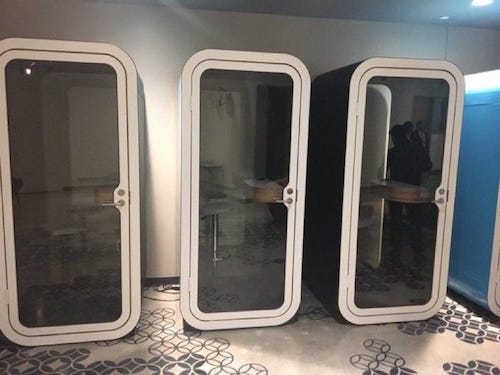“The bat virus is over. Get back to work.”
That’s the official message right now from many corporations. In Australia, CEOs are telling their employees to back to work or else. Not a few days a week but all five of them. Talk about stupid.
David Sacks ignited a debate with this post
David is a popular podcaster on the All-In Show.
When he speaks people listen. So when he threw this bomb at remote workers it sparked a debate…
It’s time to admit that Remote Work doesn’t work.
Work-from-home Friday is a 4-day work week. Full WFH is a 2 day work week. Every interaction has to be scheduled, which means a lot of information-sharing doesn’t happen.
Remote is a great lifestyle, not a way to build a great company.
There’s gross exaggeration here. Working from home on a Friday isn’t a 4-day week. If you can’t trust your employees to work from wherever then that’s the real problem. Remote work has nothing to do with it.
Full work-from-home isn’t a 2 day work week. What nonsense.
It’s the opposite. In many cases, work-from-home means you work more because there’s no separation between work and life. It’s expected you can jump on a call or answer a Slack message whenever.
Whereas when you work from an office, once you leave there’s this hidden agreement that you’ve clocked off for the day. You may answer requests but it’s not an obligation.
So to say working from home is lazy is incorrect.
There’s no way for businesses to stay in person forever
Here’s what the debate misses.
Let’s take this real-life case of a San Francisco AI company, Lindy. The founder Flo Crivello recently canceled remote work. Party pooper.
He admitted remote work was:
- more comfortable
- offers flexible schedules
- gives everyone their own office
- saved massive time on commutes
- lets employees work from anywhere (even another country)
- lets parents be closer to their kids and spend more time with them.
He canceled remote work because he says it’s too hard to get a hold of one another. LOL. Perhaps someone should show him the iPhone.
He also says “people can’t interrupt each other” on a video call.
Ummm … yes you can. It’s no different to in-person chats. Some would argue all the interrupting is bad for progress. Perhaps his team doesn’t get along and it has nothing to do with interrupting.
There are bugs with video, audio, screenshare, etc.
Another lame excuse. If you have bugs then use Zoom. It works. Ask the millions of companies that use it. Blaming tech when you’re a tech company is lame.
It feels like blaming work-from-home in a lot of companies is just a cop out for bad leadership and a lack of trust.
Companies can never stay remote forever (by design)
I’ll chuck a bomb at Mr Flo Rider:
No company that grows and ends up with hundreds of employees can be located in the same town forever.
Especially not a tech company.
Companies expand to new countries, so when this occurs remote work happens on auto-pilot. You can’t have your employees serving Singapore customers suddenly move to San Francisco because you can’t run a Zoom call without tech issues.
Eventually there will be HQ and multiple offices — that assumes your company makes it through the startup stage and scales.
Working at the office is the real version of laziness
I hate working from an office.
The modern open-plan layout is a disaster. In my last tech job working in an office, I could never get anything done.
There’d be constant disruptions. Often not from employees I work with, but from random people wanting to do surveys or get me to speak to a guy at reception who wants to chat.
It also surprised me how many employees came to work to do their personal stuff. People would often be talking to friends and family or doing their internet banking. And the amount of back-to-back coffees was wild.
Every few hours some employee or team had a coffee break to catch up.
I spent more time in cafes talking about my weekend than I ever did helping customers in my sales job. And you couldn’t say no because then you’d look rude.
Writer Jack Raines also points out the concept of “fake work” when working in an office.
The workday is full of everyone convincing everyone that they’re working. And the temptation is to make out you have all this big secret stuff going on. It’s a joke.
There were times when I’d finished all my work but couldn’t go home, even though I’d tripled my revenue target. I had to stick around and do a Broadway performance of looking like I was working.
As 5pm approached, I’d have to deal with the judging eyes.
“Wow, he’s going home early. Do we lay him off next round?”
The problem with the work-from-office model is it’s time-based by default, whereas work-from-home is outcome-based.
Who gives a damn if I left work on time if I made my employer a tonne of money? It shouldn’t matter. It doesn’t matter.
As Amazon software engineer Daniel Vassallo points out, working from the office often looks like this…

Image credit-Daniel Vassallo via this post
Looks worse than a prison cell.
Final Thought
I’m so sick of the work-from-home debate.
Remote work is here to stay. It’s the norm because it works. If leaders were effective managers and trusted their employees then we could all work from anywhere. Let’s not blame work-from-home for bad leadership.
Working from anywhere works.


